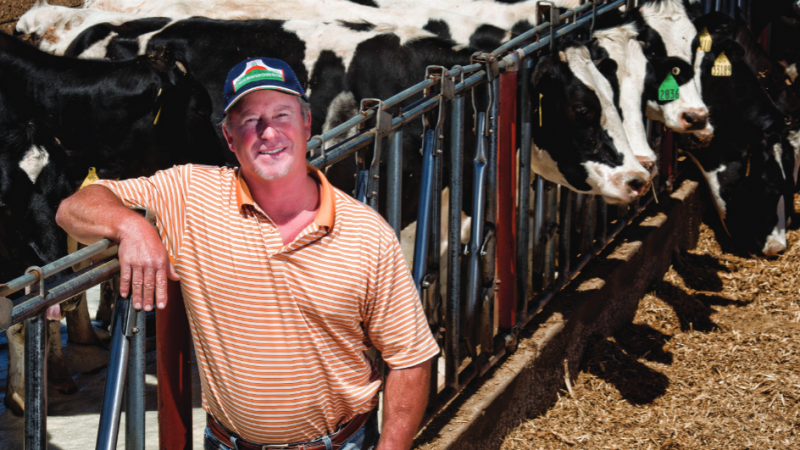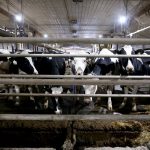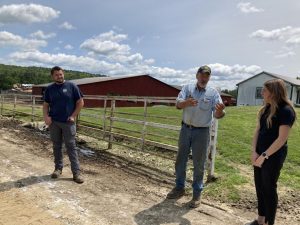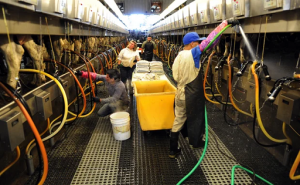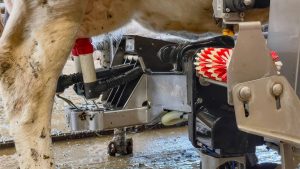
He’s dumping 15,000 gallons of milk each day, had to let his 40 employees go and plans to kill all 4,000 of his cows because seven of his 13 wells have been contaminated by toxins called per- and polyfluoroalkyl substances (PFAS) that entered the groundwater at nearby Cannon Air Force base.
When I visited Schaap in the spring of 2016, he was on the horizon of an exciting new adventure. His cheese making business was taking off, his cows were profitable, and he was having the best of luck with employees. It seems his luck has run out.
Last summer, Schaap learned about the substance that would turn his life upside down. Not only were his cows and calves impacted, but Schaap himself has eight to 10 times the normal levels of PFAS in his blood stream. And his wife is likely facing the same fate.
“This has poisoned everything I’ve worked for and everything I care about,” Schaap told New Mexico Political Report. “I can’t sell the milk. I can’t sell beef. I can’t sell the cows. I can’t sell crops or my property. The Air Force knew they had contamination. What I really wonder is, why didn’t they say something?”
The Department of Defense has disclosed 121 installations where groundwater has been impacted by PFAS.
PFAS are used in fire-retardant foam to smother flames from mock airplanes set on fire by trainees. The chemicals make the foam resistant to grease, water, dirt and heat, which make it useful in extinguishing jet fuel fires.
“It’s potentially been in the groundwater the whole time I’ve owned the dairy,” Schaap said.
Schaap is the first dairy farmer to feel the impact of this pollution, but he likely won’t be the last. Not only are there 80,000 dairy cows in Curry County, local news stations report presence of PFAS is spreading slowly in the Ogallala Aquifer, the largest aquifer in the nation, which spans 174,000 miles and parts of eight states.
Air Force authorities say they are working diligently to get the problem under control, but their focus is not the agricultural impact.
“I really want to emphasize this: Our focus is drinking water for human consumption – not for agriculture, not for anything else,” Air Force spokesman Mark Kinkade told Searchlight.
The Environmental Protection Agency announced last week its intent to regulate the chemical by year’s end, but the agency’s plan does not include immediate cleanup actions.
